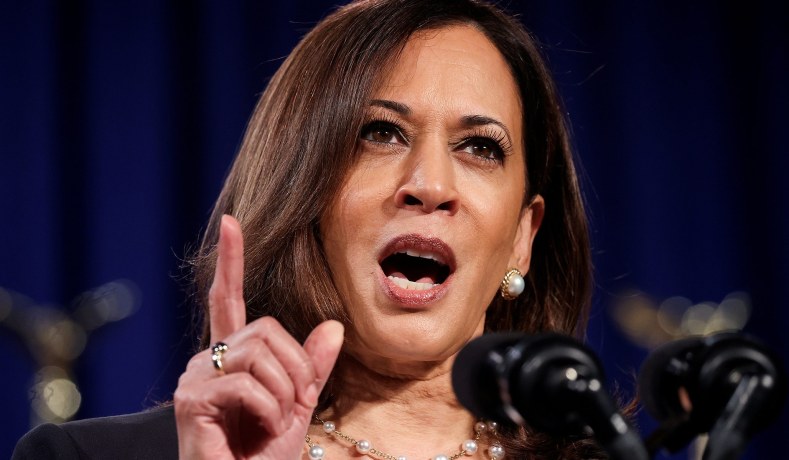In her long-anticipated first sit-down interview since becoming the Democratic nominee, Vice President Kamala Harris spoke at length about her approach to climate and energy policy. As expected, Harris attempted to head off efforts to define her as a left-wing climate radical who will ban fracking, a policy she supported in 2019.
>>>READ: Tim Walz Pick Signals Progressive Confidence on Climate Policy
Harris insisted she would not ban fracking as president but never explained the evolution in her thinking. In a key exchange Harris said, “I think the — the — the most important and most significant aspect of my policy perspective and decisions is my values have not changed. You mentioned the Green New Deal. I have always believed and I have worked on it, that the climate crisis is real, that it is an urgent matter to which we should apply metrics that include holding ourselves to deadlines around time … We did that with the Inflation Reduction Act. We have set goals for the United States of America and by extension the globe around when we should meet certain standards for reduction of greenhouse gas emissions, as an example. That value has not changed.”
Trump retorted that the problem is her “values have not changed.” But his critique missed the mark. I trust the consistency of Harris’ values – her concern for environmental stewardship and particularly how changing environmental conditions affect lower-income populations – but I don’t trust that her worldview and framework for making policy will advance the values she espouses.
For instance, Harris emphasized the need to “apply metrics,” to hold “ourselves to deadlines around time,” and to “set goals” and “certain standards” for ourselves and the globe. This is the language of central planning, which is her worldview and source code for policy making. A candidate who releases a widely panned price control scheme does so when central planning is her guiding philosophy.
>>>READ: Energy Policies a Potential Trump-Vance Administration Should Prioritize
Harris’ interview concerns people who value environmental stewardship because politicians who consider themselves Master Planners or Master Regulators are more prone to disrupt the flow of our master resource – energy – in ways that damage our planet and our national and economic security. The Biden-Harris administration has not worked toward an outright “fracking ban” per se but they have worked to appease anti-fossil fuel radicals in their party by pausing American LNG exports and cracking down on coal plants and internal combustion engines.
As we explain in a recent report, over the past two decades, America’s natural gas boom is both the leading cause of America’s emissions reduction and declining prices for consumers. The coal to gas transition also saved thousands of lives due to better air quality. The primary cause of these positive outcomes was not central planning but innovation and private sector investment.
Harris clearly went into her interview intent on repeating her core message – “my values have not changed” – to brand herself as a consistent, likable and non-hypocritical leader. From a messaging perspective, she succeeded. But she failed to reassure voters who are concerned that, at her core, she’s just another left-wing central planner who will make bad policy decisions that disproportionately hurt poor people.
Harris’ silence on one of the most important and pressing policy questions before Congress – permitting reform – also betrayed her bias for central planning. Central planners tend to be unenthusiastic about lowering barriers to innovation and creating new opportunities for entrepreneurs when the real work, in their view, is to set “deadlines” and “goals.” Harris offered a lot of “top down” language in her answers but showed no passion for “bottom up” innovation.
Regardless of what the Republican nominee says or does, other conservative can and should explain why central planning won’t advance core American values around stewardship.
The views and opinions expressed are those of the author’s and do not necessarily reflect the official policy or position of C3.
